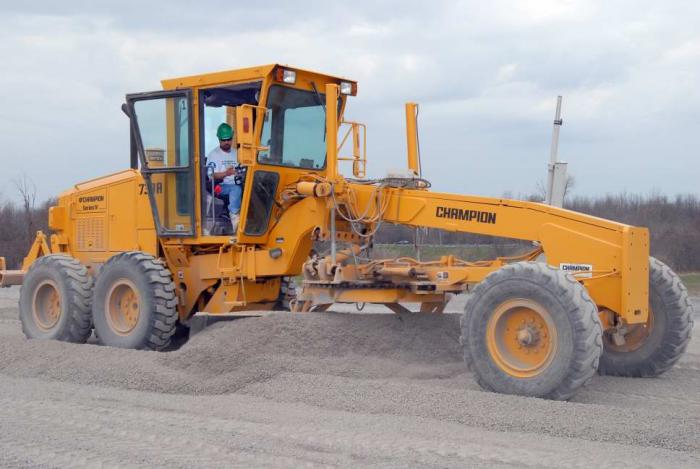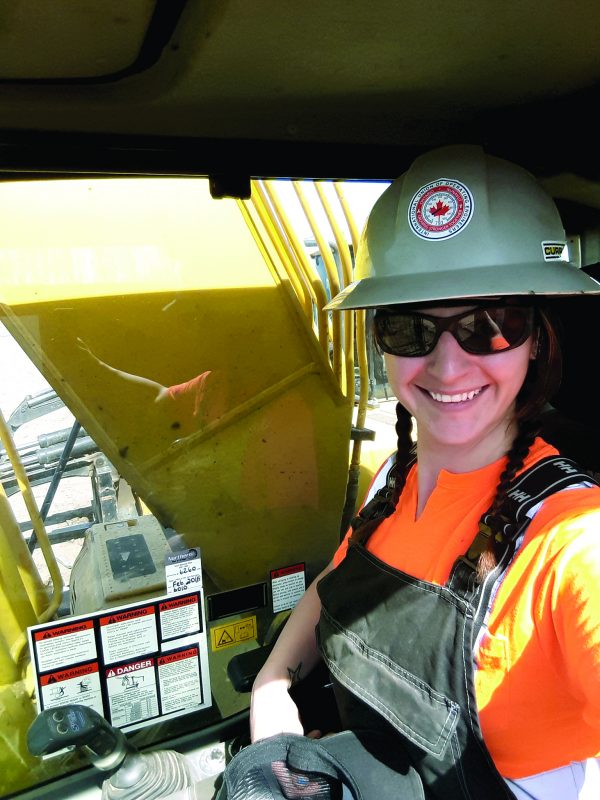
About
Ask yourself...
- Could you operate large machinery?
- Can you work as part of a team on a busy job site?
- Do you have good communication skills?
- Can you listen and follow instructions?
- Do you have good judgment?
If the answer to these questions is yes, then a career as a Heavy Equipment Operator could be right for you.
Heavy equipment operators operate heavy equipment used in the construction and maintenance of roads, bridges, airports, gas and oil pipelines, tunnels, buildings and other structures, in surface mining and quarrying activities and in material handling work.
They are employed by construction, pipeline and logging companies, and by heavy equipment contractors.
Duties
As a Heavy Equipment Operator, your duties may include the following:
- Operating heavy equipment such as back-hoes and bulldozers to lift, move or place equipment or materials
- Inspecting, cleaning, lubricating and refilling equipment
Heavy equipment operators use four main types of equipment: back-hoes, bulldozers, front-end loaders and graders. Some operators work with several types of equipment while others choose to specialize:
- Back-Hoe Operator: uses various attachments to scoop and dump materials, dig trenches, load heavy materials and break rock or concrete
- Bulldozer Operator: clears and levels land
- Front-End Loader Operator: picks up loads of earth, rock, sand, gravel or snow, then moves and dumps them
- Grader Operator: controls the height and angle of grader blades to spread and level earth or other materials such as snow
Work Conditions
The standard work week for heavy equipment operators is 40 hours (8 hours a day, 5 days a week). As with many careers in construction, there are peak periods that will require you to work overtime. The number of additional hours you work each week depends on the construction sector and region you work in, and will vary from one job to the next.
As a Heavy Equipment Operator, you will work outdoors on construction sites. You will work closely with other equipment operators and with ground crew.
As with all careers in construction, safety is the top priority. Heavy equipment operators are trained to work safely and take special precautions to protect against injury.
Training and Certification
Certification is required in Quebec, and is available but voluntary in Newfoundland and Labrador, and the Northwest Territories. Where certification is not available, it may be possible to study as an apprentice through your local labour organization.
Even where certification is voluntary, it is still recommended, as it tells employers and other workers that you are a skilled professional and it also helps you get jobs.
To keep their skills current, Heavy Equipment Operators must keep up with new technologies by reading and speaking with others in the field.
Courses
Anticipated In-Demand Regions
- Nova Scotia
- Ontario - Eastern Region
- Ontario - Northern Region
Wage
 | ||
| Mid range $58,030 |  | High range $79,040 |
The “mid range” wage is based on the national “median” wage reported in the Job Bank career profile for this National Occupational Category (NOC): 7521
Note: Some career profiles may have more than one NOC code associated with them.
More good stuff
|
“I can honestly say there’s nothing I hate about my job..." says Heavy Equipment Operator Megan Morley. Hear more from Megan in the article: Operating big yellow dozers not just for the boys |
 |








